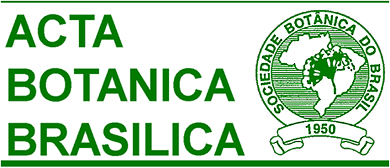ABSTRACT
This study aimed to investigate for the first time the ecological interactions between species of Agaricomycetes and their host plants in Brazilian mangroves. Thirty-two field trips were undertaken to four mangroves in the state of Pernambuco, Brazil, from April 2009 to March 2010. One 250 x 40 m stand was delimited in each mangrove and six categories of substrates were artificially established: living Avicennia schaueriana (LA), dead A. schaueriana (DA), living Rhizophora mangle (LR), dead R. mangle (DR), living Laguncularia racemosa (LL) and dead L. racemosa (DL). Thirty-three species of Agaricomycetes were collected, 13 of which had more than five reports and so were used in statistical analyses. Twelve species showed significant values for fungal-plant interaction: one of them was host-exclusive in DR, while five were host-recurrent on A. schauerianna; six occurred more in dead substrates, regardless the host species. Overall, the results were as expected for environments with low plant species richness, and where specificity, exclusivity and/or recurrence are more easily seen. However, to properly evaluate these relationships, mangrove ecosystems cannot be considered homogeneous since they can possess different plant communities, and thus different types of fungal-plant interactions.
Keywords
Fungi; estuaries; host-fungi interaction; host-relationships; plant-fungi interaction

 Thumbnail
Thumbnail
